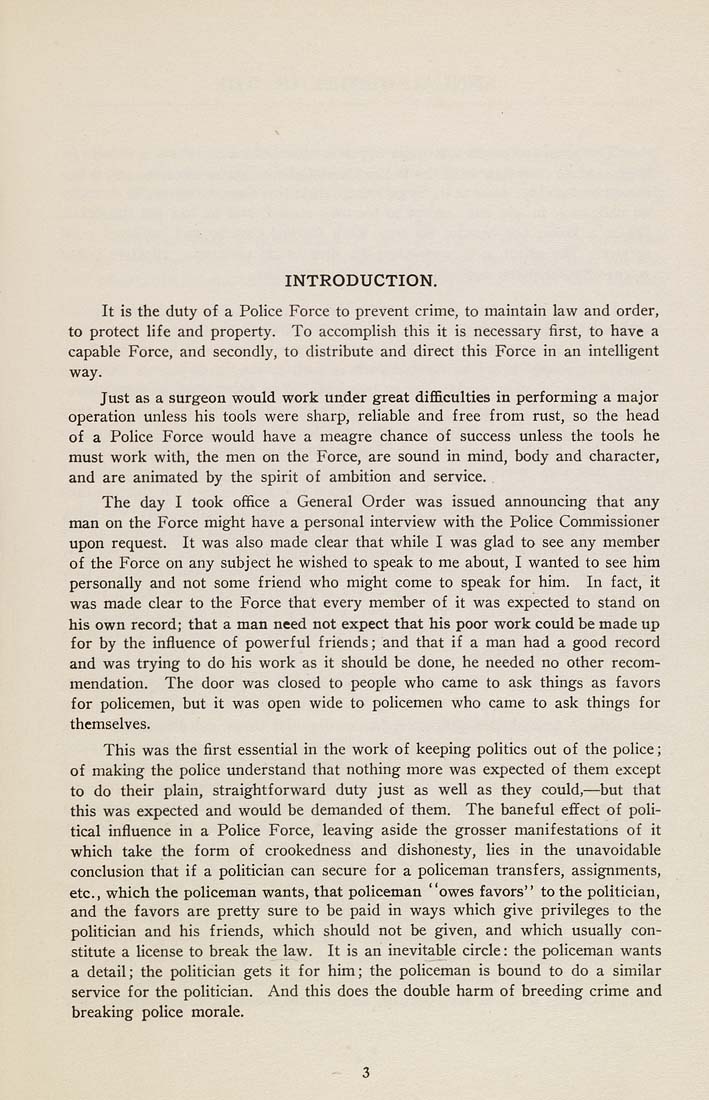INTRODUCTION.
It is the duty of a Police Force to prevent crime, to maintain law and order,
to protect life and property. To accomplish this it is necessary first, to have a
capable Force, and secondly, to distribute and direct this Force in an intelligent
way.
Just as a surgeon would work under great dif&culties in performing a major
operation unless his tools were sharp, reliable and free from rust, so the head
of a Police Force would have a meagre chance of success unless the tools he
must work with, the men on the Force, are sound in mind, body and character,
and are animated by the spirit of ambition and service.
The day I took office a General Order was issued announcing that any
man on the Force might have a personal interview with the Police Commissioner
upon request. It was also made clear that while I was glad to see any member
of the Force on any subject he wished to speak to me about, I wanted to see him
personally and not some friend who might come to speak for him. In fact, it
was made clear to the Force that every member of it was expected to stand on
his own record; that a man need not expect that his poor work could be made up
for by the influence of powerful friends; and that if a man had a good record
and was trying to do his work as it should be done, he needed no other recom¬
mendation. The door was closed to people who came to ask things as favors
for policemen, but it was open wide to policemen who came to ask things for
themselves.
This was the first essential in the work of keeping politics out of the police;
of making the police understand that nothing more was expected of them except
to do their plain, straightforward duty just as well as they could,—but that
this was expected and would be demanded of them. The baneful effect of poli¬
tical influence in a PoHce Force, leaving aside the grosser manifestations of it
which take the form of crookedness and dishonesty, lies in the unavoidable
conclusion that if a politician can secure for a policeman transfers, assignments,
etc., which the policeman wants, that policeman "owes favors" to the politician,
and the favors are pretty sure to be paid in ways which give privileges to the
politician and his friends, which should not be given, and which usually con¬
stitute a license to break the law. It is an inevitable circle: the policeman wants
a detail; the politician gets it for him; the policeman is bound to do a similar
service for the politician. And this does the double harm of breeding crime and
breaking police morale.
|








